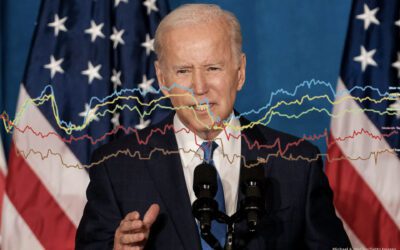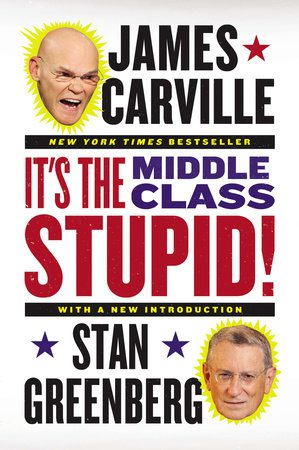The 2014 midterm election demonstrated voters’ dissatisfaction with the current state of campaigns and campaign spending. More and more money is being spent each cycle, voters feel bombarded by advertisements from opaque outside groups, and they have no doubt that Congress is bought and sold by special interests and campaign donors. Voters are acutely aware that wealthy interests have an increasing influence on the political process and they now have a strong appetite for change.
A nationwide survey conducted by Greenberg Quinlan Rosner during and immediately after election day, on behalf of Democracy Corps and commissioned by Every Voice, sampled both 2014 voters and those likely to participate in 2016, allowing for analysis of this issue’s impact this year and its relevance moving forward.[1] The survey shows the extent to which candidates’ positions on campaign spending had a clear electoral impact in 2014 and how much more important the issue will become in the next presidential campaign.
There is no doubt that voters find the status quo unacceptable – most find Super PACs disturbing and bitterly regret the amount of money spent on campaigns today. And as we have found numerous times before, voters across party lines strongly endorse Every Voice’s proposed solutions. But rather than seeing this as a long-term ‘pie in the sky’ policy goal, we find here important evidence that campaign spending mattered to voters’ choice in the ballot box and that they demand Congress make reform a priority.
Key findings:
- Most voters are aware of Super PACs, and almost universally view them negatively.
- A majority say there has been more campaign spending than usual this cycle, with its effect being strongly negative on the political process.
- Voters believe the political system is broken, as their Congresspersons listen to special interests and contributors rather than the views of their constituents.
- Democrats, at least, report that a candidate’s stance on money in politics was one of the top issues influencing their vote.
- In such an environment, there is broad support across party lines for a proposal to overhaul campaign spending, even when the proposal includes the use of taxpayer funds.
- A specific Every Voice plan to reform spending wins 70 percent approval, with over two-thirds support from members of both parties.
- Campaign spending projects to be an increasingly significant issue moving forward, with the 2016 electorate equally supportive of reform.
Reflecting on 2014
By any measure, voters expressed serious angst and frustration at the ballot box this past Tuesday, punishing the status quo in Washington for presiding over a government that they feel does not work for them. Among the main concerns voters have is that wealthy and special interests now control the political process, drowning out their voices.
Voters make it clear that their anger at the current way campaigns are run goes deeper than just complaints about the tone of negative advertising; 55 percent say the level of spending in this campaign was more than normal, and they rate that spending negatively by a 7:1 ratio, with the plurality saying they tuned it out and another 17 percent concluding that it is bad for our democracy.
Majorities of Republican and Democratic voters believe that special interest groups, lobbyists, and campaign contributors have the largest influence on members of Congress, displacing the views of constituents by a wide margin. In an era of hyper-partisanship, with candidates across the country accusing each other of sticking too closely to party lines, it is remarkable that twice as many voters say special interests and lobbyists hold sway over members of Congress than say Republican or Democratic party leaders do. Entire campaigns were played out on the partisan issue (“He/she voted XX percent of the time with Obama,” or “He/she voted XX percent of the time with Tea Party leaders in Congress”) even though twice as many voters believe it is the big moneyed interests, not the party line, that influences Congressional votes.

For most voters, the economy and jobs were the top issues related to the Congressional vote; as we have reported in a previous memo on this survey, this was an “Economy Election.” But campaign spending and spending reform had an important part to play as well.
Previous Democracy Corps/Every Voice polling in contested Senate states[2] found that statewide candidates who advocated for a Constitutional Amendment to limit the electoral influence of wealthy special interests were handsomely rewarded, with two thirds of voters or more becoming more likely to support them. But this survey demonstrates the dangers of candidates being on the wrong side of the issue.
Among those who did not vote for a Republican candidate, one quarter of voters report that the candidate being beholden to billionaire special interest donors was a top reason why. Candidates’ special interest ties were more damaging than opposing raising the minimum wage, opposing equal pay for women, wanting to repeal the Affordable Care Act, supporting cuts to education funding, or even wanting to increase Medicare costs. Campaign spending didn’t just equal these other core Democratic arguments; it bested them.

Campaign spending did not become a central campaign argument in some races this year, but voters displayed an increasing awareness of the issues at play and an increasing willingness to punish candidates on the wrong side of it. In the races where it was a factor, campaign spending played a pivotal role in drawing support for reform candidates.
Campaign Spending Reform in the Future
The influence of money in politics is not a one-time worry that will pass with time. So long as the current system holds, voters will become more outward in their desire for change, and it will become a higher and higher priority.
Already, we see that reducing the influence of spending in campaigns is a top priority for 60 percent of voters, including being the single top priority for 18 percent. Candidates who ignore these issues are missing out on a huge part of the electorate’s untapped desire for a government responsive to its citizens and not to big money. People really care, and will only engage more as their voices continue to be overshadowed by special interests.

This is not a problem without a solution. In fact, voters strongly endorse Every Voice’s proposals to drastically reduce the influence of money in politics. There is little opposition to a plan to overhaul campaign spending by getting rid of big donations and allowing only small donations to candidates, matched by taxpayer funds. The use of taxpayer funds does not detract from support; 48 percent of all voters rate the plan positively and just 20 percent rate it negatively. Even Republicans – who one might think would balk at the mention of taxpayer funds – support the plan by a nearly 2:1 ratio.
Our survey also tested the language of a specific proposal and found it to have broad support:
| Some people propose addressing the role of money in politics with a new law that would provide qualified candidates with limited public matching funds for small contributions they raise from constituents. The law would also require disclosure for all political spending by outside groups, and strictly enforce election laws. |
The specific proposal draws 70 percent support from 2014 voters, including 41 percent who strongly favor it. Only 20 percent oppose the proposal. Yet again, support is consistent across party lines. Seventy-seven (77) percent of Democrats, 72 percent of independents, and 65 percent of Republicans favor such a proposal, as do 73 percent of Millennials and 72 percent of white voters.
But even more encouraging for proponents of campaign finance reform is the proposal’s performance among the projected 2016 electorate, which is different than 2014’s in terms of demographics and partisanship. Presidential-year voters support the Every Voice proposal by an equally wide margin, 69 percent to 19 percent, with 37 percent strongly in favor, proving again that this is a winning issue that will endure until there is serious reform.
[1] Results from September, 2014 Democracy Corps/Every Voice Senate Battleground survey
[2] The survey among 904 likely 2016 voters (1429 unweighted), including 588 2014 voters (1030 unweighted) was conducted from November 3-5, 2014, using a list of 2010 voters, 2012 voters, and new registrants. Unless otherwise noted, the margin of error for the full sample is +/-2.59 % at 95% confidence.




